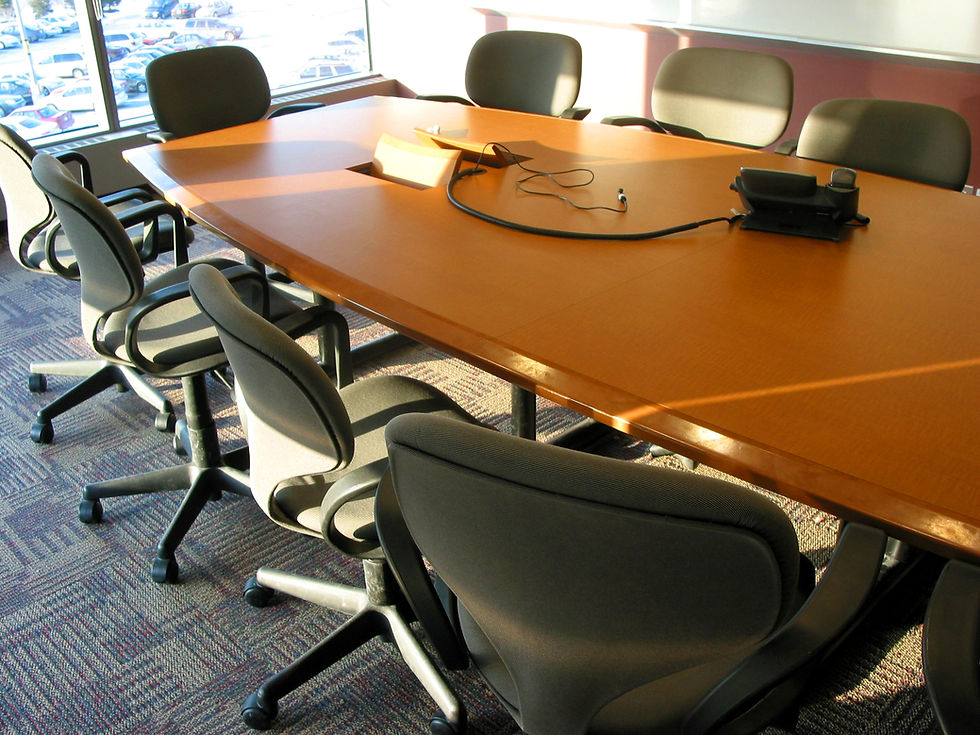Eliminate Negotiation Distractions
- ICLEF

- Sep 17, 2024
- 3 min read
Updated: Oct 21

Eliminate Negotiation Distractions
Notes on Negotiation Written by Marty Latz, Latz Negotiation Institute
How long has it been since you were speaking with a colleague and they glanced at their phone to check a text, notification or email? I bet this has already happened to you multiple times today. Or maybe it was your phone that buzzed while you were drafting an email.
Distractions are an increasing and inevitable part of life today. According to Harvard Business Review's "10 Quick Tips for Avoiding Distractions at Work" “[t]he average employee is getting interrupted 50 to 60 times per day, and about 80% of these interruptions are unimportant.
As a result, people are spending little time in what psychologists call “the flow state,” a space where people are up to five times more productive, according to research from McKinsey.”
Even a quick glance at your phone is problematic, noted this article, as a “one-tenth of a second [interruption] can add up to a 40% productivity loss over the course of a day, and it can take us 23 minutes to get back into the zone after task switching.”
You can imagine the negative impact of this on negotiations, whether in person, online or even in drafting a counteroffer.
So, what should you do about distractions to improve your productivity and negotiation results?
1. Make your Strategic Planning Sessions distraction-free
This sounds simple and easy – but it’s not. Studies show that while many believe they can multitask well (thus efficiently, effectively and productively dealing in real-time with distractions), only a small fraction (around 2%) actually do it well.
When I lead Strategic Planning Sessions with executives for significant negotiations, I strongly encourage everyone to put their phones on Airplane Mode or, at the least, use Do Not Disturb so only their Favorites come through.
These sessions require uninterrupted focus, attention, and brainpower. Distractions take away from all this.
2. Negotiate ground rules and breaks for the actual negotiation
I recently finished ABC News’ anchor and former Clinton White House aide George Stephanopoulos’ fascinating new book The Situation Room: The Inside Story of Presidents in Crisis (with co-author Lisa Dickey).
In the book, they report that everyone entering the White House Situation Room – where the President and other administration principals often negotiate life and death issues with world leaders – must check their phones at the door.
This is a security issue and a great negotiation best practice. It ensures that the participants in these meetings/negotiations devote their full and undistracted attention to the issues at hand.
Most of my 14-year-old daughter’s 9th grade teachers also require them to check their phones at the classroom door. Same principle.
Set similar ground rules for your significant negotiations. And build in regular breaks so everyone can deal with the inevitable messages that arise when they’re negotiating.
3. Set your phone aside for “Flow State Time” when engaging in crucial negotiation tasks
When I need to really focus on something related to a significant negotiation, I put my phone outside my reach where I can’t see or hear it. I would recommend you do this, too.
Before marriage and kids, I used to really enjoy working late at night. Why? No distractions. It’s just not practical now. But I still recreate this environment when needed.
Latz’s Lesson: Distractions detract from your ability to achieve your best negotiation results, so eliminate them.
Marty Latz is the founder of Latz Negotiation Institute, a national negotiation training and consulting company, and ExpertNegotiator, a Web-based software company that helps managers and negotiators more effectively negotiate and implement best practices based on the experts' proven research. He is also the author of Gain the Edge! Negotiating to Get What You Want (St. Martin’s Press 2004). He can be reached at 480-951-3222 or Latz@ExpertNegotiator.com
ICLEF • Indiana Continuing Legal Education Forum, Indianapolis, IN • Premier Indiana CLE








Comments